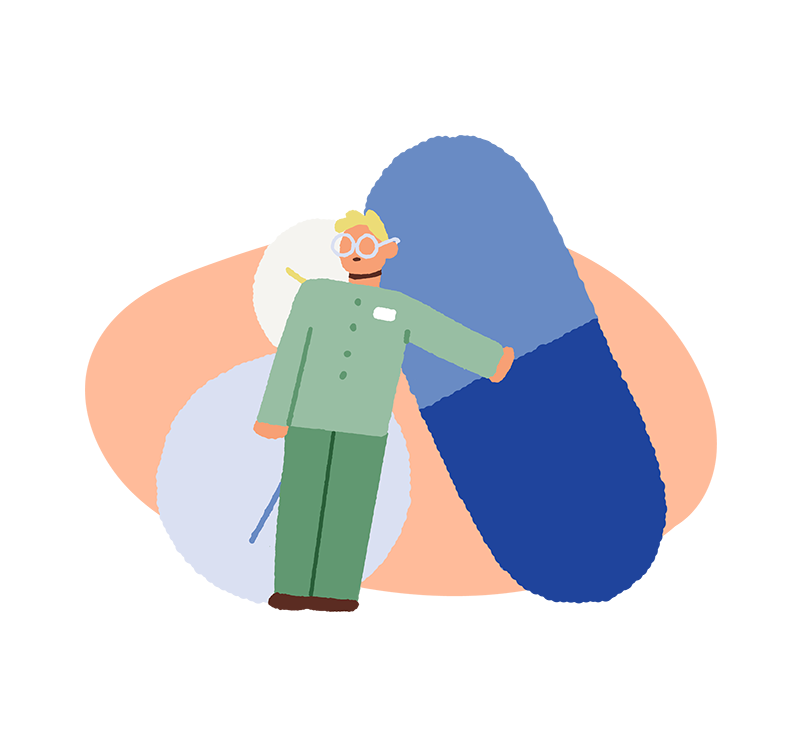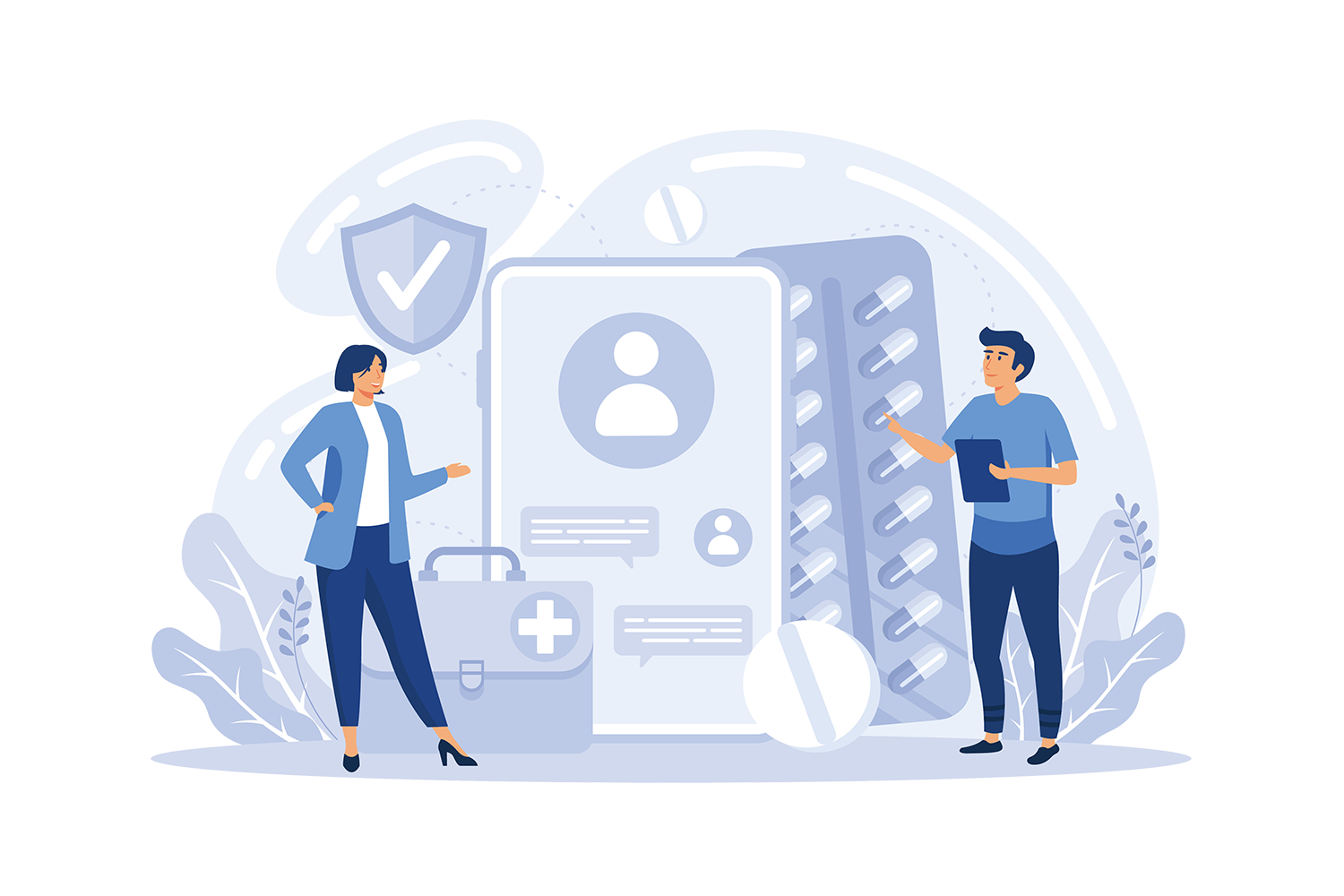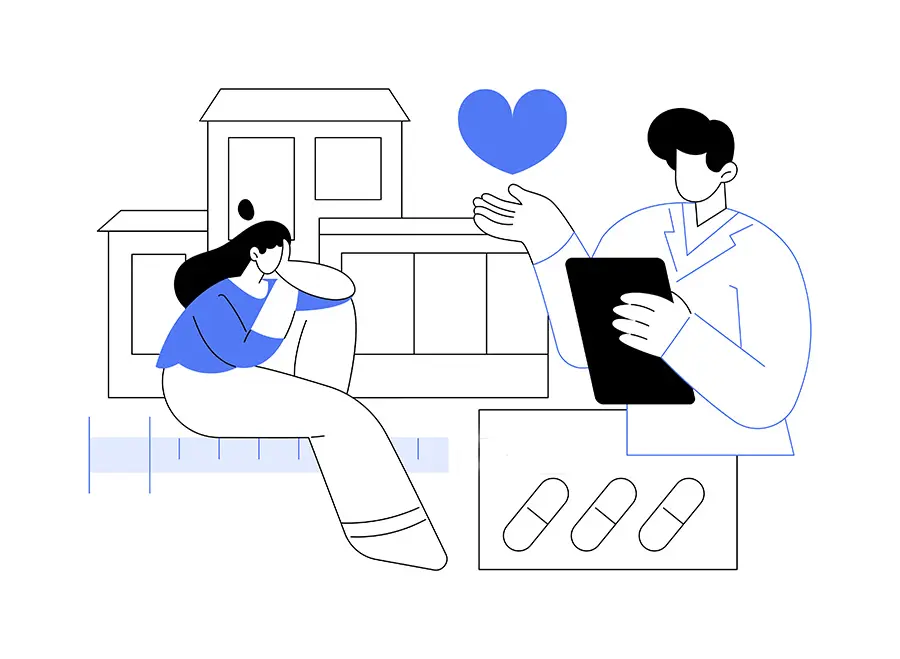Withdrawal is a normal reaction. It happens when your body tries to find balance after you stop using opioids or cut back. This process can be uncomfortable and even painful, but it is a necessary step towards recovery from opioid addiction. Treatment options available to make the journey more manageable and increase your chances of long-term success.
Opioid withdrawal occurs when you suddenly stop or reduce your intake of opioid drugs after prolonged use. At that point, your body relies on opioids. This means it has adjusted to having them in your system.
Abruptly stopping them can trigger a range of unpleasant symptoms as your body tries to readjust. Opioids can be prescription pain medicines like oxycodone and hydrocodone. They can also be illicit drugs like heroin and fentanyl.
The symptoms of opioid withdrawal can vary in severity and duration. This depends on factors like which opioid you were using, how much you were taking, and for how long. Common withdrawal symptoms include:
The timeline for opioid withdrawal depends on the type of opioid involved. For short-acting opioids like heroin, symptoms typically begin within 12 hours after the last dose and can last for several days to a week or more. For longer-acting opioids like methadone, withdrawal symptoms may not appear until 72 hours after the last dose, but can persist for several weeks.
Opioid withdrawal is not life-threatening in itself, but it can be extremely uncomfortable and challenging to manage alone. Severe withdrawal symptoms can increase the risk of relapse, as many people will seek relief by using opioids again.
If you are experiencing severe or prolonged withdrawal symptoms, have underlying medical conditions, or have a history of complications during previous withdrawal attempts, seek help immediately. Healthcare professionals can provide medications and supportive care to alleviate the symptoms and ensure your safety.

Medications can play a vital role in managing opioid withdrawal symptoms and increasing the chances of successful recovery. These medications work by reducing the severity of withdrawal symptoms or by substituting the opioid with a safer alternative.This process is known as medical detoxification for opioids.
Additionally, there are many prescription comfort medications that can target specific withdrawal symptoms like restlessness, diarrhea, body aches, nausea/vomiting, sweating, anxiety, and insomnia. Many providers will prescribe these medications to help prevent relapse during detox.
Prescription medications are the primary treatment for opioid withdrawal but your provider might also recommend over-the-counter (OTC) medications or alternative/complimentary therapies to provide relief. This can include OTC pain medications like ibuprofen (Advil) or acetaminophen (Tylenol), antihistamines like Benadryl for sleep and anxiety, vitamins, herbal supplements, meditation, and acupuncture. Make sure to inform your provider if you are using any additional support/medication outside of their prescribing to manage withdrawal symptoms.
Making it through opioid withdrawal is a significant milestone, and it’s critical to maintain that momentum to build up stability and prevent relapse. Having a plan for ongoing support and to prevent relapse is important to maintain your hard-earned progress.
It is common and recommended to keep taking certain medications to help you stay off opioids, including methadone and Suboxone. This type of treatment is called medication-assisted treatment (MAT). It combines prescription medications with behavioral therapies and peer support.

The goal is to help you address all sides of addiction, not just the physical symptoms. The medications help break the physical dependence and combat cravings while you work with a counselor and peer recovery specialist to treat the emotional and mental health challenges of addiction.
At Eleanor Health, we can help you face opioid withdrawal and start your recovery journey with MAT treatment. We have online and in-person services available in New Jersey, Louisiana, North Carolina, Ohio, Washington, Texas and Massachusetts.
We can help with withdrawal
 Common Opioid Withdrawal Symptoms
Common Opioid Withdrawal Symptoms
 How Prescription Medications Can Affect Addiction Recovery
How Prescription Medications Can Affect Addiction Recovery
 Detoxing from Opioids: How to Do it Safely
Detoxing from Opioids: How to Do it Safely